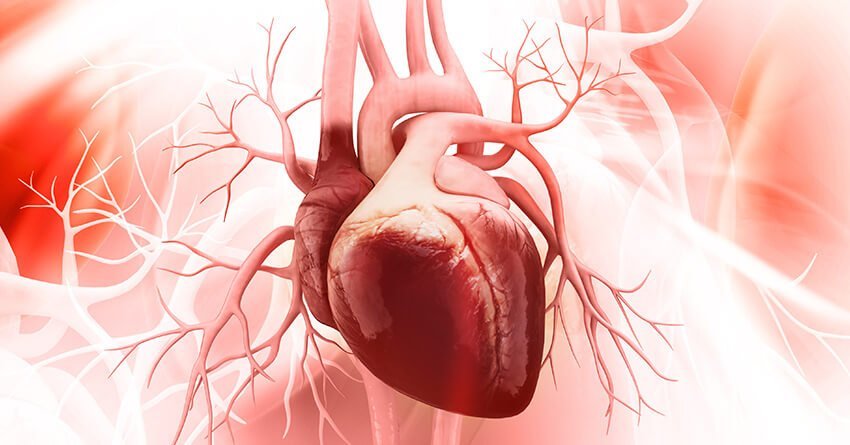Congenital Heart Defect in adults generally occurs due to hereditary heart problems. Besides, a heart problem can be minor or major depending on the condition. However, there are various types of congenital heart defects. Thus, it becomes difficult to answer which heart defect causes minor or major heart problems. Further, Cardiologists in Chennai recommend doing a complete heart examination, and it helps to detect the type of heart defect.
Types of Adult Congenital Heart Defects
1. Atrial Septal defect
A septal flaw can occur between both ventricles (pumping chambers) of the heart, called a ventricular septal flaw, or in between both atria (filling up chambers), called an atrial septal defect. With either type, oxygenated blood originating from the lungs obtains blended with deoxygenated blood returning from the body.
2. Blocked arteries
A shutoff in the heart might be unable to open totally or not close entirely due to an issue or might be misshapen. These defects compel the heart to function more challenging to move a typical quantity of blood with the heart in satisfying the body’s demands.
3. Slim Blood Vessels.
Blood vessels that are too slim at a certain point trigger the heart to work tougher to pump a regular blood supply. Blood vessels can be linked improperly, sending deoxygenated blood to the body or already oxygenated blood back to the lungs.
4. Ventricular Septal Defect
A ventricular septal problem is a hole in the wall that divides the reduced chambers of the heart, called the ventricles. It permits raised amounts of blood to flow via the hole to the lungs. In many individuals born with a ventricular septal problem, the hole closes on its very own throughout childhood. In others, the hole is as well tiny to trigger signs. If the hole is large, individuals might experience signs, including shortness of breath as well as quick heart rates.
5. Pulmonary stenosis
Pulmonary stenosis is a narrowing of the pulmonary shutoff or an area near the pulmonary valve that prevents blood from moving to the lungs. This condition is connected with arrhythmias and also cardiac arrest.
6. Coarctation of the Aorta
The coarctation of the aorta occurs when one of the aortic valves gets narrowed. It causes problems in the blood flow.
Signs and symptoms of Congenital heart disease
Common signs of adult hereditary heart defects consist of:
- Lack of breath, particularly throughout the exercise.
- Tiredness.
- Cyanosis (a blue color to the lips, skin, or fingernails caused by a lack of oxygen).
- A heart whispering.
- Abnormal heart rhythms (arrhythmias).
- Swelling of the extremities.
- Most of these symptoms can be confused with various other illnesses impacting the heart or lungs and less significant conditions, and the impacts of aging and physical inactivity.
What are the reasons for Adult hereditary heart defects?
- A hereditary heart issue is a condition one is born. Some hereditary (inherited) diseases or problems. Down’s disorders are related to a congenital heart defect. Some materials or diseases that an expecting lady is revealed to can trigger a congenital heart issue in her coming child, including prescription medicines and uncontrolled diabetic issues.
- Researchers aren’t certain what causes most types of congenital heart defects. A congenital heart defect is passed down via family members (acquired). Understanding a congenital heart defect aids to know how the heart works.
- The heart is separated into chambers– two upper chambers (atria) and two reduced chambers (ventricles). The ideal side of the heart moves blood to the lungs with capillary (lung arteries). In the lungs, blood grabs oxygen and, after that, goes back to the left side of your heart via the lung blood vessels.
- The left side of the heart then pumps the blood via the aorta and out to the rest of the body. A congenital heart defect can impact any heart framework, consisting of the arteries, shutoffs, chambers, and the wall of cells that separates the chambers (septum).
Which are the treatment options?
Every heart condition needs a different type of treatment. Therefore, you can expect the following treatment options:
- Observation: Some minor hereditary heart problems discovered in adults will never need to be treated or fixed. Nonetheless, these people should obtain regular cardiac appointments to ensure that the problem does not disappear with time.
- Medicine Treatments: Some minor hereditary heart flaws can be treated with drugs to assist the heart job better.
- Slow the heartbeat (beta-blockers): Helps to relax the blood vessels (calcium channel blockers). Besides, it helps to avoid embolisms, such as warfarin. In addition, it eliminates excess liquid in the body (diuretics). Not all medicines benefit all types of genetic heart issues. Some medications that help one sort of defect can make other kinds even worse.
- The expert can do a Valve substitute. In addition, the doctor can do the repair work of more challenging congenital heart issues can be done via open-heart surgery.
- A heart transplant is suggested when valve replacement cannot repair the internal part of the heart. Sometimes, it gets difficult to get a heart transplant donor in critical cases.
Several people with a hereditary heart issue go at risk for an infection of the heart, particularly a problem called endocarditis, even if their flaw has been repaired. Some people require to take antibiotics before any oral or surgery to minimize the danger of a lethal infection.
Although it is unusual, an individual with a deadly genetic heart problem might receive a heart transplant or a heart-lung transplant. These treatments are performed only in people that are healthy enough to go through significant surgery.
Who can treat an adult coronary heart defect?
A cardiologist is a health expert who treats and provides treatment for heart conditions. Besides, you can book an online consultation with the Cardiologist in Chennai Online.



